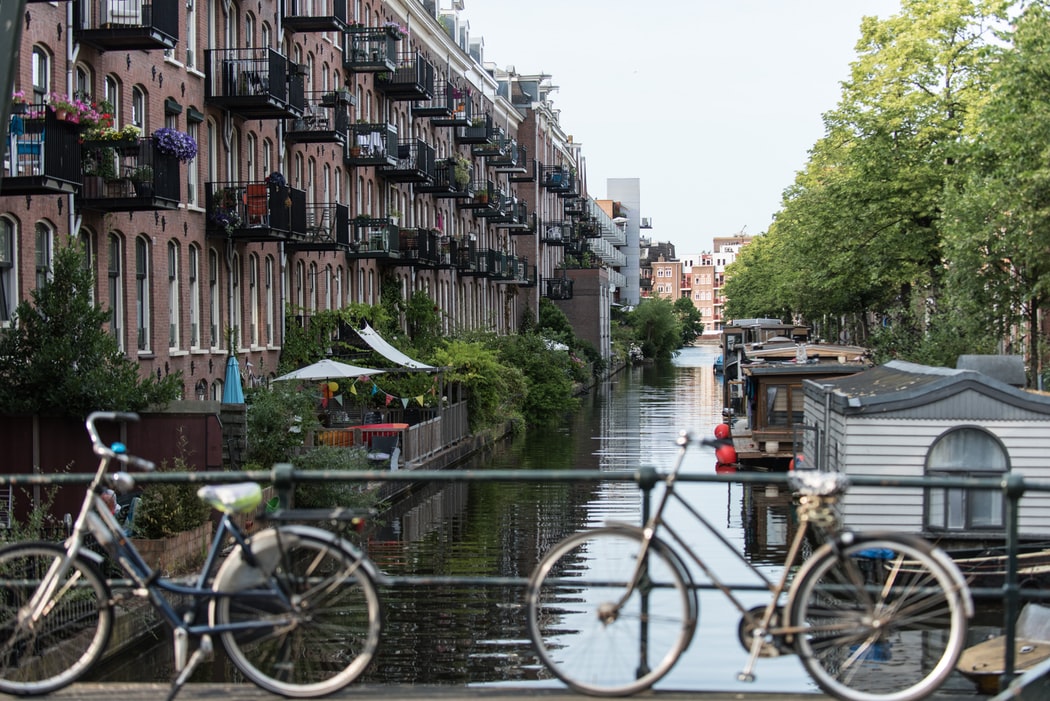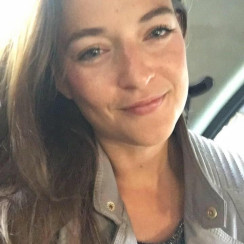Capital city of the Netherlands, Amsterdam bustles with independent eateries, live music, world-famous museums, and festivals. Known for its good quality of life, Amsterdam boasts many beautiful canals which weave through its clean and safe environment. It may be surprising to some that half of Amsterdam’s population is not Dutch, but that the diverse city has residents from more countries than in any other city worldwide. This fact explains the wide range of ethnic restaurants that can be found in Amsterdam.
Well known for its progressive and liberal approaches to life, Amsterdam has a laid-back attitude and features a youthful vibe amongst its older, more historical architecture. The latest estimates conclude that there are more bikes in Amsterdam than permanent residents!
Climate
Winter Months: (December – March): Short, dark days with heavy snowfall. Average highs of 6 Celsius and lows of 1 Celsius.
Spring (April – May): The weather begins to warm up in April-time and the tulips start to emerge.
Summer (June – August): Amsterdam is at its hottest with highs of 21 Celsius and lows of 11 Celsius. Plenty of daylight for cycle rides!
Autumn (September – November): A shoulder-season like Spring, the temperature is comfortable but not as warm as summertime and cools towards the winter months.
Local Business Etiquette and Customs
Amsterdam is renowned for its friendly, welcoming ambience and prides itself on being a safe city. There is no specific dress code etiquette when you are exploring the city. I would recommend checking the weather forecast before heading out.
Generally, when attending business events, it is better to be well-dressed than under-dressed. Most women wear trousers or trouser-suits, and it is usual to wear a jacket albeit not necessarily a suit. Colourful ensembles are not uncommon. It is perfectly acceptable to check the dress code in advance with the company you are visiting in case you are unsure.
Travel and Transport
You can access unlimited use of public transport in Amsterdam with the OV chip card. A convenient option is a one-hour card or the day-card (valid for one to seven days). The one-hour card can be purchased from the conductor or driver on the tram or bus. Day tickets can be bought on the tram or in advance, but not on the bus. The cards are valid across the whole network.
Be aware of the following when using taxis:
The taxi meter will always be turned on and you will receive a receipt upon completion of the journey. Always store this receipt carefully as it contains all the information about the trip and the taxi.
Taxi drivers must always accept short trips.
Taxi drivers must deliver you safely to your destination via the shortest/quickest route.
Not satisfied? If you have a bad experience, complaints can be made to http://www.taxiklacht.nl or call 0900-202 1881 (between 09:00 and 17:00). In order to make a complaint, you must be able to provide the number plate or the number of the taxi, the date and the time of the journey – these will be noted on your journey receipt.
Ensure your taxi is licensed and legal. If in doubt, look for roof lights displaying the name of the taxi operator and blue number plates.
Dining and Bars
Favourites include:
- Meghna- Indian
- Happyhappyjoyjoy West- Asian
- De Liefde- Cafe
- Bord’Eau- Dutch
- Healthfood Restaurant De Bolhoed
Beauty and Fitness
- The Massagehuys
- Botanical gardens
- Splash Fitness:Day pass = EUR 20,-Individual lesson = EUR 15,-A tourist week = EUR 69,- (also available if you are here on a business trip )
Safety and Emergency Services
Police, fire brigade or ambulance
Emergency police, fire brigade, ambulance: 112
Police information (non-emergency): 0900 8844
Anonymous tip-line (to report a crime): 0800 7000
Emergency doctor’s office:
An emergency doctor’s office exists for problems outside of regular doctor’s hours. The service operates around the clock (24-hour) and is available for nights, weekends and all public holidays. The number in Amsterdam is 088 003 0600.The operator will connect you with an emergency doctor in your area. Bring identification and insurance pass if possible when going to the A&E department. Because everyone in the Netherlands is legally obliged to take out health insurance, standard coverage will normally cover hospital treatment. In some situations, paying a deductible may be necessary.
Pickpockets are active in crowded areas such as cafes, bars and restaurants, also known to target major events, public transport and museums.
Alcohol consumption is prohibited in most public places in the city centre besides bars and licensed venues.
The purchase and use of cannabis are only allowed in coffee shops. There is a limit of five grams per day and is strictly prohibited to anyone under the age of 18. Purchasing or selling hard drugs is illegal. Street dealers are known for selling fake or unsafe drugs and it is advisable to ignore them should they approach you.
While they are a tourist attraction, beware of being too close to the water’s edge of the many canals. High walls and cold temperatures can make it difficult to climb back out of the canals should one fall in.

